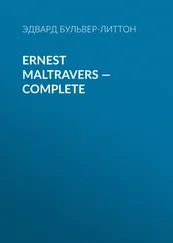Эдвард Бульвер-Литтон - Eugene Aram — Complete
Здесь есть возможность читать онлайн «Эдвард Бульвер-Литтон - Eugene Aram — Complete» — ознакомительный отрывок электронной книги совершенно бесплатно, а после прочтения отрывка купить полную версию. В некоторых случаях можно слушать аудио, скачать через торрент в формате fb2 и присутствует краткое содержание. Жанр: foreign_prose, literature_19, Европейская старинная литература, foreign_antique, на английском языке. Описание произведения, (предисловие) а так же отзывы посетителей доступны на портале библиотеки ЛибКат.
- Название:Eugene Aram — Complete
- Автор:
- Жанр:
- Год:неизвестен
- ISBN:нет данных
- Рейтинг книги:4 / 5. Голосов: 1
-
Избранное:Добавить в избранное
- Отзывы:
-
Ваша оценка:
- 80
- 1
- 2
- 3
- 4
- 5
Eugene Aram — Complete: краткое содержание, описание и аннотация
Предлагаем к чтению аннотацию, описание, краткое содержание или предисловие (зависит от того, что написал сам автор книги «Eugene Aram — Complete»). Если вы не нашли необходимую информацию о книге — напишите в комментариях, мы постараемся отыскать её.
Eugene Aram — Complete — читать онлайн ознакомительный отрывок
Ниже представлен текст книги, разбитый по страницам. Система сохранения места последней прочитанной страницы, позволяет с удобством читать онлайн бесплатно книгу «Eugene Aram — Complete», без необходимости каждый раз заново искать на чём Вы остановились. Поставьте закладку, и сможете в любой момент перейти на страницу, на которой закончили чтение.
Интервал:
Закладка:
“With richest hand... barbaric pearl and gold.”
But we must return to the forsaken spouse.—Left in this abrupt destitution and distress, Mrs. Lester had only the resource of applying to her brother-in-law, whom indeed the fugitive had before seized many opportunities of not leaving wholly unprepared for such an application. Rowland promptly and generously obeyed the summons: he took the child and the wife to his own home,—he freed the latter from the persecution of all legal claimants,—and, after selling such effects as remained, he devoted the whole proceeds to the forsaken family, without regarding his own expenses on their behalf, ill as he was able to afford the luxury of that self-neglect. The wife did not long need the asylum of his hearth,—she, poor lady, died of a slow fever produced by irritation and disappointment, a few months after Geoffrey’s desertion. She had no need to recommend her children to their kindhearted uncle’s care. And now we must glance over the elder brother’s domestic fortunes.
In Rowland, the wild dispositions of his brother were so far tamed, that they assumed only the character of a buoyant temper and a gay spirit. He had strong principles as well as warm feelings, and a fine and resolute sense of honour utterly impervious to attack. It was impossible to be in his company an hour and not see that he was a man to be respected. It was equally impossible to live with him a week and not see that he was a man to be beloved. He also had married, and about a year after that era in the life of his brother, but not for the same advantage of fortune. He had formed an attachment to the portionlesss daughter of a man in his own neighbourhood and of his own rank. He wooed and won her, and for a few years he enjoyed that greatest happiness which the world is capable of bestowing—the society and the love of one in whom we could wish for no change, and beyond whom we have no desire. But what Evil cannot corrupt Fate seldom spares. A few months after the birth of a second daughter the young wife of Rowland Lester died. It was to a widowed hearth that the wife and child of his brother came for shelter. Rowland was a man of an affectionate and warm heart: if the blow did not crush, at least it changed him. Naturally of a cheerful and ardent disposition, his mood now became soberized and sedate. He shrunk from the rural gaieties and companionship he had before courted and enlivened, and, for the first time in his life, the mourner felt the holiness of solitude. As his nephew and his motherless daughters grew up, they gave an object to his seclusion and a relief to his reflections. He found a pure and unfailing delight in watching the growth of their young minds, and guiding their differing dispositions; and, as time at length enabled the to return his affection, and appreciate his cares, he became once more sensible that he had a HOME.
The elder of his daughters, Madeline, at the time our story opens, had attained the age of eighteen. She was the beauty and the boast of the whole country. Above the ordinary height, her figure was richly and exquisitely formed. So translucently pure and soft was her complexion, that it might have seemed the token of delicate health, but for the dewy and exceeding redness of her lips, and the freshness of teeth whiter than pearls. Her eyes of a deep blue, wore a thoughtful and serene expression, and her forehead, higher and broader than it usually is in women, gave promise of a certain nobleness of intellect, and added dignity, but a feminine dignity, to the more tender characteristics of her beauty. And indeed, the peculiar tone of Madeline’s mind fulfilled the indication of her features, and was eminently thoughtful and high-wrought. She had early testified a remarkable love for study, and not only a desire for knowledge, but a veneration for those who possessed it. The remote corner of the county in which they lived, and the rarely broken seclusion which Lester habitually preserved from the intercourse of their few and scattered neighbours, had naturally cast each member of the little circle upon his or her own resources. An accident, some five years ago, had confined Madeline for several weeks or rather months to the house; and as the old hall possessed a very respectable share of books, she had then matured and confirmed that love to reading and reflection, which she had at a yet earlier period prematurely evinced. The woman’s tendency to romance naturally tinctured her meditations, and thus, while they dignified, they also softened her mind. Her sister Ellinor, younger by two years, was of a character equally gentle, but less elevated. She looked up to her sister as a superior being. She felt pride without a shadow of envy, at her superior and surpassing beauty; and was unconsciously guided in her pursuits and predilections, by a mind she cheerfully acknowledged to be loftier than her own. And yet Ellinor had also her pretensions to personal loveliness, and pretensions perhaps that would be less reluctantly acknowledged by her own sex than those of her sister. The sunlight of a happy and innocent heart sparkled on her face, and gave a beam it gladdened you to behold, to her quick hazel eye, and a smile that broke out from a thousand dimples. She did not possess the height of Madeline, and though not so slender as to be curtailed of the roundness and feminine luxuriance of beauty, her shape was slighter, feebler, and less rich in its symmetry than her sister’s. And this the tendency of the physical frame to require elsewhere support, nor to feel secure of strength, influenced perhaps her mind, and made love, and the dependence of love, more necessary to her than to the thoughtful and lofty Madeline. The latter might pass through life, and never see the one to whom her heart could give itself away. But every village might possess a hero whom the imagination of Ellinor could clothe with unreal graces, and to whom the lovingness of her disposition might bias her affections. Both, however, eminently possessed that earnestness and purity of heart, which would have made them, perhaps in an equal degree, constant and devoted to the object of an attachment, once formed, in defiance of change and to the brink of death.
Their cousin Walter, Geoffrey Lester’s son, was now in his twenty-first year; tall and strong of person, and with a face, if not regularly handsome, striking enough to be generally deemed so. High-spirited, bold, fiery, impatient; jealous of the affections of those he loved; cheerful to outward seeming, but restless, fond of change, and subject to the melancholy and pining mood common to young and ardent minds: such was the character of Walter Lester. The estates of Lester were settled in the male line, and devolved therefore upon him. Yet there were moments when he keenly felt his orphan and deserted situation; and sighed to think, that while his father perhaps yet lived, he was a dependent for affection, if not for maintenance, on the kindness of others. This reflection sometimes gave an air of sullenness or petulance to his character, that did not really belong to it. For what in the world makes a man of just pride appear so unamiable as the sense of dependence?
CHAPTER II.
A PUBLICAN, A SINNER, AND A STRANGER
“Ah, Don Alphonso, is it you? Agreeable accident! Chance presents you to my eyes where you were least expected.” Gil Blas.
It was an evening in the beginning of summer, and Peter Dealtry and the ci-devant Corporal sate beneath the sign of The Spotted Dog (as it hung motionless from the bough of a friendly elm), quaffing a cup of boon companionship. The reader will imagine the two men very different from each other in form and aspect; the one short, dry, fragile, and betraying a love of ease in his unbuttoned vest, and a certain lolling, see-sawing method of balancing his body upon his chair; the other, erect and solemn, and as steady on his seat as if he were nailed to it. It was a fine, tranquil balmy evening; the sun had just set, and the clouds still retained the rosy tints which they had caught from his parting ray. Here and there, at scattered intervals, you might see the cottages peeping from the trees around them; or mark the smoke that rose from their roofs—roofs green with mosses and house-leek,—in graceful and spiral curls against the clear soft air. It was an English scene, and the two men, the dog at their feet, (for Peter Dealtry favoured a wirey stone-coloured cur, which he called a terrier,) and just at the door of the little inn, two old gossips, loitering on the threshold in familiar chat with the landlady, in cap and kerchief,—all together made a groupe equally English, and somewhat picturesque, though homely enough, in effect.
Читать дальшеИнтервал:
Закладка:
Похожие книги на «Eugene Aram — Complete»
Представляем Вашему вниманию похожие книги на «Eugene Aram — Complete» списком для выбора. Мы отобрали схожую по названию и смыслу литературу в надежде предоставить читателям больше вариантов отыскать новые, интересные, ещё непрочитанные произведения.
Обсуждение, отзывы о книге «Eugene Aram — Complete» и просто собственные мнения читателей. Оставьте ваши комментарии, напишите, что Вы думаете о произведении, его смысле или главных героях. Укажите что конкретно понравилось, а что нет, и почему Вы так считаете.












